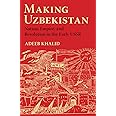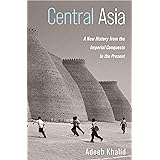
Enjoy fast, free delivery, exclusive deals, and award-winning movies & TV shows with Prime
Try Prime
and start saving today with fast, free delivery
Amazon Prime includes:
Fast, FREE Delivery is available to Prime members. To join, select "Try Amazon Prime and start saving today with Fast, FREE Delivery" below the Add to Cart button.
Amazon Prime members enjoy:- Cardmembers earn 5% Back at Amazon.com with a Prime Credit Card.
- Unlimited Free Two-Day Delivery
- Streaming of thousands of movies and TV shows with limited ads on Prime Video.
- A Kindle book to borrow for free each month - with no due dates
- Listen to over 2 million songs and hundreds of playlists
- Unlimited photo storage with anywhere access
Important: Your credit card will NOT be charged when you start your free trial or if you cancel during the trial period. If you're happy with Amazon Prime, do nothing. At the end of the free trial, your membership will automatically upgrade to a monthly membership.

Download the free Kindle app and start reading Kindle books instantly on your smartphone, tablet, or computer - no Kindle device required.
Read instantly on your browser with Kindle for Web.
Using your mobile phone camera - scan the code below and download the Kindle app.

OK
Islam after Communism: Religion and Politics in Central Asia Paperback – January 18, 2007
Purchase options and add-ons
Islam after Communism reasons that the fear of a rampant radical Islam that dominates both Western thought and many of Central Asia’s governments should be tempered by an understanding of the politics of antiterrorism, which allows governments to justify their own authoritarian policies by casting all opposition as extremist. Comparing the secularization of Islam in Central Asia to experiences in Turkey, the former Yugoslavia, and other secular Muslim states, the author lays the groundwork for a nuanced and well-informed discussion of the forces at work in this crucial region.
- Print length253 pages
- LanguageEnglish
- PublisherUniversity of California Press
- Publication dateJanuary 18, 2007
- Dimensions6 x 0.75 x 9 inches
- ISBN-100520249275
- ISBN-13978-0520249271
The Amazon Book Review
Book recommendations, author interviews, editors' picks, and more. Read it now.
Frequently bought together

Customers who viewed this item also viewed
Editorial Reviews
Review
“Clear and well-researched. . . . Khalid’s book is a very helpful aid in understanding the complexities of today’s Central Asia.” (Intl Journal Of Middle East Stds (Ijmes) 2010-07-15)
From the Inside Flap
From the Back Cover
About the Author
Product details
- Publisher : University of California Press; Edition Unstated (January 18, 2007)
- Language : English
- Paperback : 253 pages
- ISBN-10 : 0520249275
- ISBN-13 : 978-0520249271
- Item Weight : 1.9 ounces
- Dimensions : 6 x 0.75 x 9 inches
- Best Sellers Rank: #12,353,541 in Books (See Top 100 in Books)
- #1,993 in Central Asia History
- #11,348 in Church & State Religious Studies
- #14,976 in Communism & Socialism (Books)
- Customer Reviews:
About the author

Discover more of the author’s books, see similar authors, read author blogs and more
Customer reviews
Customer Reviews, including Product Star Ratings help customers to learn more about the product and decide whether it is the right product for them.
To calculate the overall star rating and percentage breakdown by star, we don’t use a simple average. Instead, our system considers things like how recent a review is and if the reviewer bought the item on Amazon. It also analyzed reviews to verify trustworthiness.
Learn more how customers reviews work on Amazon-
Top reviews
Top reviews from the United States
There was a problem filtering reviews right now. Please try again later.
Khalid talks about how the greatest threat to the region is succession crises after any of the local dictators die. It's been close to twenty years since the book was published, and many of those dictators have died or stepped down.
Still a good book; it just needs a second edition or for the reader to keep in mind recent developments.
In the rest of this review, I address some more specific points.
1. Prof. Khalid does not shy away from attacking other authors. Salman Rushdie's views are "particularly pompous" (p. 208, n. 14). Ahmed Rashid mixes "arrogance and ignorance in equal measure" in describing Central Asia (p. 3). See also p. 209, n.20; p. 210, n. 4. Even where I agree with Prof. Khalid's conclusions, his arrogant tone does not help him persuade.
2. Specifically, Prof. Khalid spends a great deal of time attacking "essentialism" and its proponents, like Samuel Huntington and Bernard Lewis. "Essentialism" is the view, in this context, that a "pure" or "true" Islam exists, and that to the extent that cultures or sects deviate from the pure form, they are not really Muslim. Essentialism, in Prof. Khalid's view, is historically baseless, and also irresponsible because it creates and "us versus them" attitude that, in turn, leads to conflict. "Islam, for Lewis, is immutable and impervious to change brought about by history or society. ...Such essentialist arguments are much loved by today's Islamic extremists, who proceed from the assertion of total incompatibility of Islam and the West. Osama bin Laden and Bernard Lewis completely agree on this point" (p. 7).
Objectively speaking, I think Prof. Khalid is correct. Speaking as a non-Muslim, it seems clear to me that Islam can and has changed, at least in its outward forms, and today varies from region to region, from sect to sect, and from believer to believer. But in another, very important sense, Prof. Khalid is wrong. Sometimes perception is reality. To a radical Muslim, the notion of situational Islam is ridiculous. To the extent that Khalid's Uzbeks differ in belief or practice from Muslims in other places, they are not simply different - they are apostate. And the distiction is important enough in the eyes of many to warrant assassination and terrorism. Some Muslims may believe Islam is compatible with modernity, but others disagree. The terms "dar al-Islam" and "dar al-Harb," after all, were not invented by Westerners.
3. The upshot of the "essentialist" argument is Prof. Khalid's conclusion that Uzbeks should not be lumped in with other Islamic groups, or automatically assumed to be radical. Stated so simply, I completely agree. The reality, obviously, is not so simple, and the book provides its own evidence. Prof. Khalid minimizes the role and legitimacy of the Islamic Movement of Uzbekistan (IMU), and yet the group exists, and actively fought coalition forces in Afghanistan. Its members may be small, but they came from somewhere - both physically and culturally. Prof. Khalid's tone suggests his dislike for President Bush, yet Bush's willingness to work with Uzbek President Islam Karimov until 2005 indicates that Bush was not guilty of tarring all Uzbeks as dangerous fanatics.
Although I disagree with some of what Prof. Khalid writes, I nevertheless enjoyed the book for the engaging discussion. Far better to encounter an idea, examine it, accept the good and reject the bad, than to remain unaware.
Islam after Communism is an attempt to convince the reader that the notion of "Islam" as a fixed set of (1) rules, (2) practices, (3) ideas--indeed, a fixed anything--that exists independent of political, economical, and other historical changes, is a fallacious assumption. The author, Adeeb Khalid, attempts to accomplish this feat primarily through the examples of the profound transformations the seventy-three-year period (1918-1991) of Soviet authority rendered in the religious, political, educational, and cultural understandings of Islam by the Muslim populations of Central Asia. His basic concern seems to be the deconstruction of the "Western essentialist" view of Islam: That it is (1) political by nature, (2) intolerant of other ideologies (religious, economic, and political), (3) oppressive to women, (4) militant in achieving its aims, and (5) that the most important thing to EVERY Muslim is that the tenets of Islam be upheld at ALL costs.
Although the author is rather opinionated (and repetitive), he is a good story teller. The book is an interesting, smooth read. I recommend it for anybody interested in the history of the Soviet Union, the Communist influence in Central Asia and on Central Asian Muslims, and/or the history of the Muslim peoples. This is a history book, not a book about Islamic religion per se.









